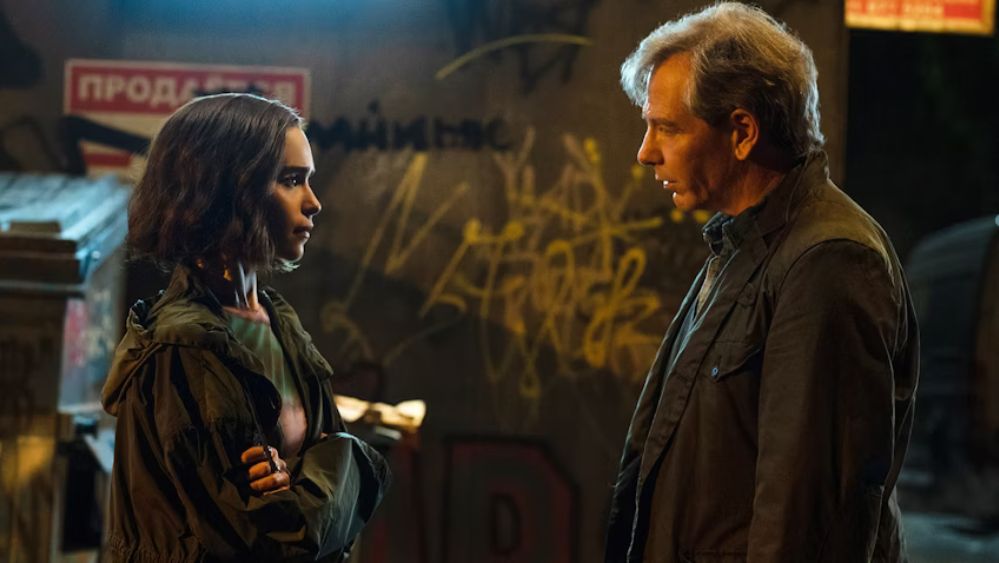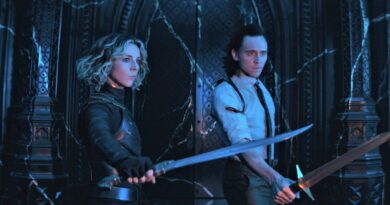Secret Invasion: A Missed Opportunity for Marvel Espionage
Marvel’s Secret Invasion finally puts the iconic Nick Fury, played by the legendary Samuel L. Jackson, in the spotlight for a six-episode espionage adventure. The show presents a unique concept where shape-shifting Skrulls plan to infiltrate Earth and wreak havoc. However, despite the intriguing premise and strong performances, the series falls short of delivering the tension and fear fans expected.
One of the major flaws of Secret Invasion lies in its failure to maintain the element of surprise. Unlike its comic book counterpart, the show reveals the Skrulls’ true forms early on, eliminating the paranoia that should have fueled the story. The absence of genuine tension robs the series of its espionage charm and leaves it feeling flat and uneventful.
Samuel L. Jackson’s portrayal of Nick Fury is undoubtedly a highlight, but even his performance cannot fully elevate the series. Fury’s exploration of vulnerability and mortality takes a backseat to a romantic subplot, which detracts from the potential depth of his character. For a character who was introduced in the first entry of the Marvel Cinematic Universe in Iron Man (2008), this series felt like a failed opportunity to explore Nick Fury’s complex history.
The supporting cast, including Don Cheadle’s Rhodey and Ben Mendelsohn’s Talos, deliver strong performances, but they are not given enough material to fully explore their characters’ depths. Olivia Colman’s Sonya Falsworth provides much-needed humour and energy to the show, but it struggles to maintain a cohesive tone between serious moments and comedic relief.

One of the major criticisms directed at the series is the lack of rationale behind Nick Fury’s decision not to call any of the Avengers for help, despite facing threats like an attempted assassination of the president and a potential nuclear war with Russia. His insistence on handling the situation singlehandedly comes across as prideful and does not align with the established teamwork and camaraderie of the Avengers. In the comics, the Secret Invasion event involved numerous superheroes banding together, which makes Fury’s approach to the show seem illogical.
The production’s hefty $212 million budget is puzzling, as some of the series largely lacks any grand action sequences or elaborate set pieces. Instead, much of the show relies on characters having conversations while walking around, leading to questions about where the budget was allocated.
Furthermore, the use of artificial intelligence to create the show’s opening title sequence has left some fans feeling disappointed. Emilia Clarke’s portrayal of G’iah also feels underutilized, with her character often wearing a perplexed expression. Additionally, the rapid increase in her character’s power without adequate development or explanation has raised eyebrows among fans.
While the alternative interpretation of the Skrulls as refugees searching for a home holds promise, the show struggles to find its own identity. Director Ali Selim fails to deliver the striking visuals and dynamic action expected from a Marvel project. The show’s dull colour palette and lack of memorable set pieces contribute to its overall lacklustre presentation.
Secret Invasion has even received the dubious honour of being the worst critically reviewed MCU series in the Disney Plus era, ranking only above Iron Fist and Inhumans in the overall MCU. Its 69% audience score places it below every other Disney Plus MCU show, except for She-Hulk, which was subjected to review bombing by certain types of viewers.
While Secret Invasion had the potential to be an intriguing addition to the Marvel universe, it ultimately misses the mark. The potential for a fresh and exciting take on the comic book classic is not fully realized, resulting in an underwhelming and dull espionage show. While it boasts a substantial budget and a talented cast, the show fails to deliver on the expectations set by the MCU and its intriguing source material.
Final Verdict: 3 stars (out of 5)




